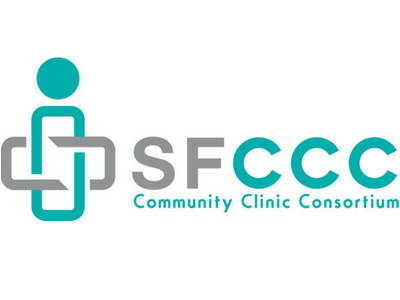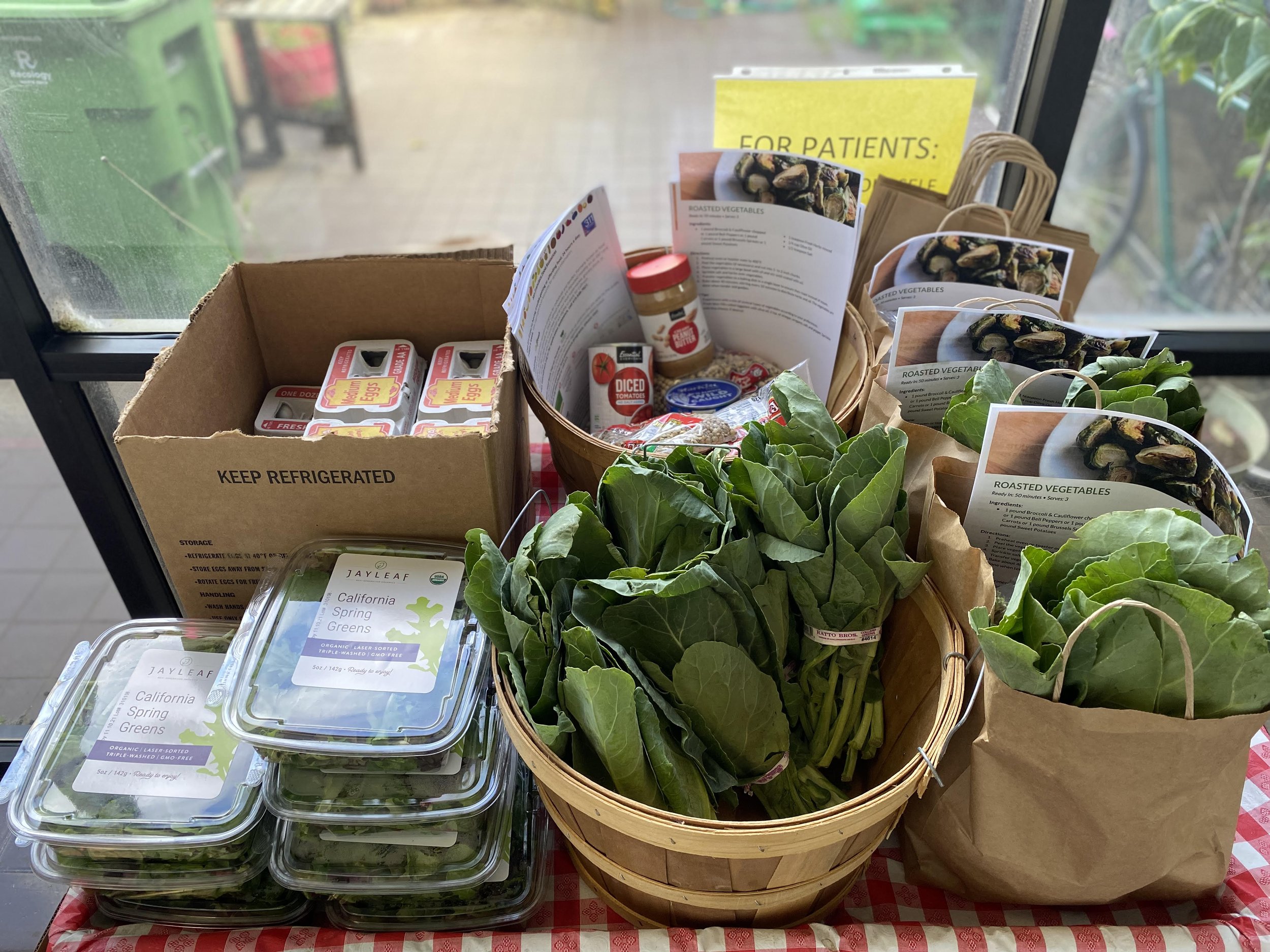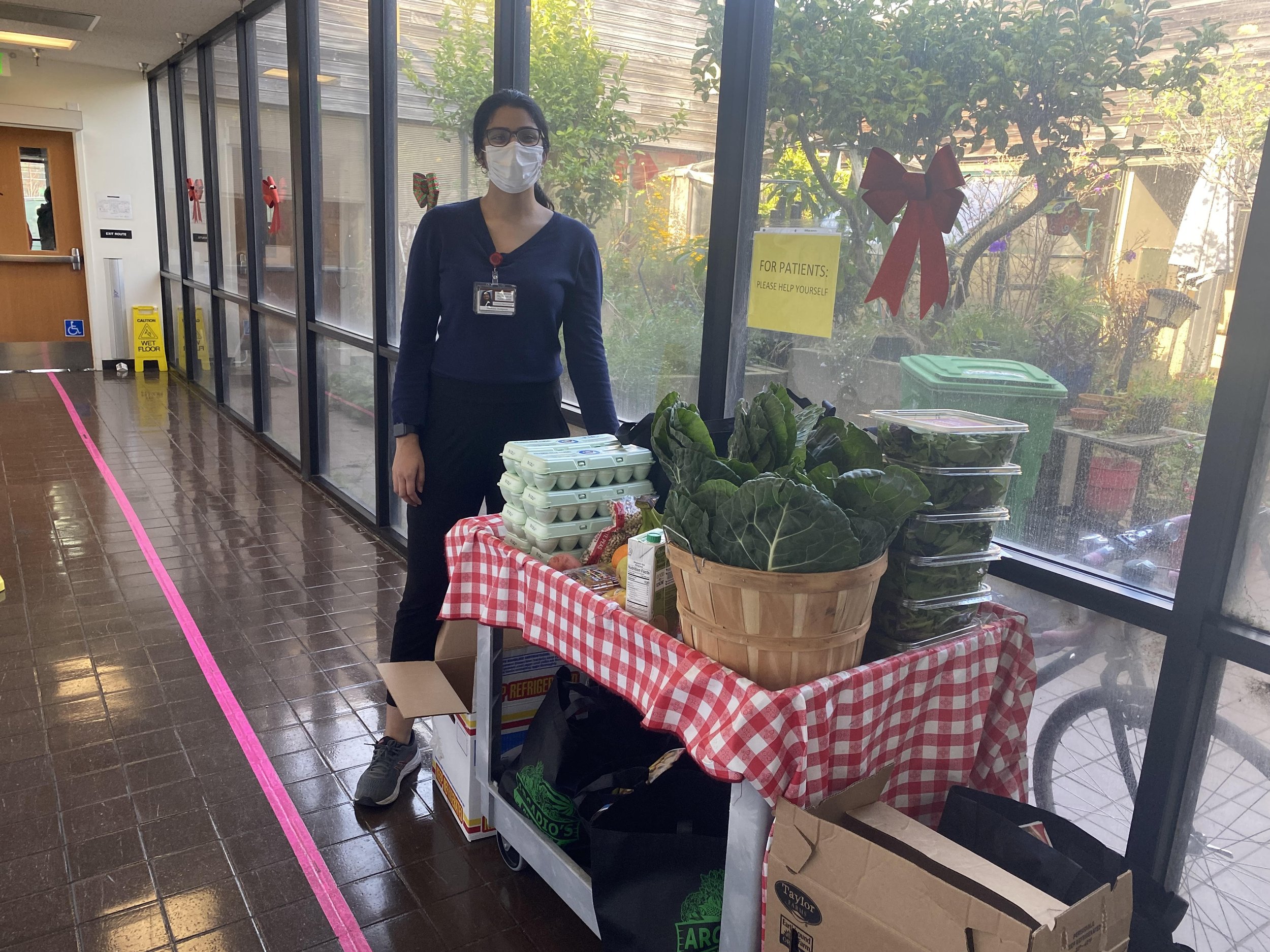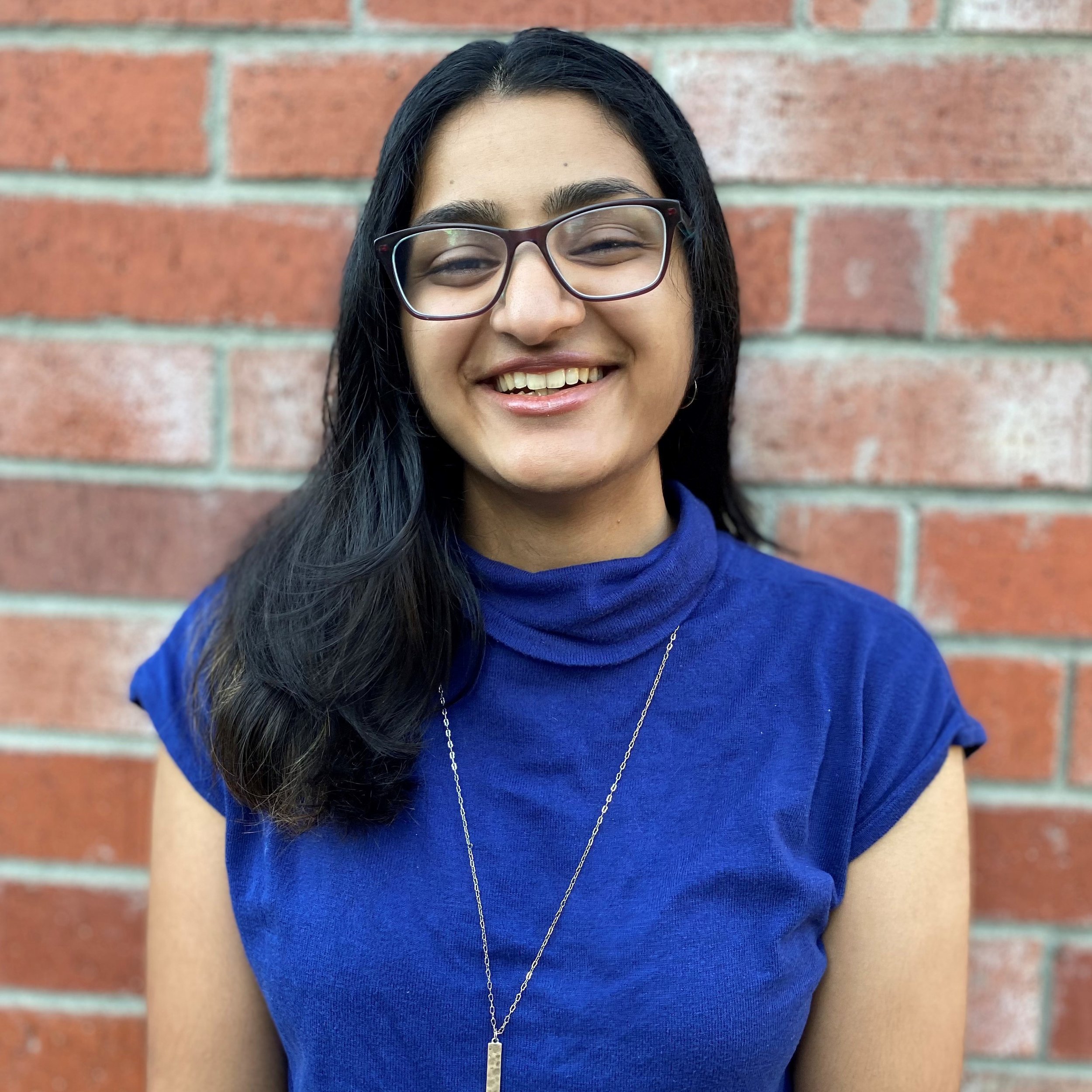NHC SF Member Blog: Reclaiming Health, Bite-by-Bite
Hey there! My name is Saadhana and I’m from the East Bay. I currently serve as a COVID-19 Responder/Food Access Coordinator at the Food As Medicine Collaborative (FAMC) at Potrero Hill Health Center (PHHC) and Southeast Health Center (SEHC), and I support the Food Pharmacies at 3rd Street Youth Center & Clinic and UCSF’s Mount Zion campus. My passion lies at the intersection of health, medicine, policy, and food justice. Having broad, overlapping interests has been challenging yet fulfilling, especially as a National Health Corps member.
CAPTION: The Food Pharmacy stand at Southeast Health Center.
As the coordinator for PHHC’s Food Pharmacy, I do weekly outreach to primarily Black/African American patients who have uncontrolled diabetes or hypertension and are experiencing food insecurity, or the lack of consistent access to enough food for every person in a household to live an active, healthy life. The COVID-19 pandemic has resulted in skyrocketing levels of food insecurity in the U.S., specifically in the Bay Area. Serving in San Francisco has shown me just how much food apartheid, defined by activist Dara Cooper as the “structural racialized inequities perpetuated through our current [food] system”, has created conditions where it is incredibly difficult for communities of color to access nutritious, culturally appropriate, and affordable food. For example, Bayview-Hunters Point, a historically African American neighborhood in San Francisco, has a significantly lower number of grocery stores compared to other districts and neighborhoods in the city. This issue of inaccessibility is rooted in gentrification and the redlining of different districts in San Francisco and the greater Bay Area.
CAPTION: Saadhana running the Food Pharmacy stand at Southeast Health Center.
While food pantries have the potential to be access points for food, there are additional problems within them that can exacerbate and complicate the root causes of hunger. People visiting food pantries are not necessarily handed the highest quality food available, because many food pantries rely on donations from companies that may include expired or processed foods. In addition to this, the social stigma of using a food pantry may prevent people – especially BIPOC – from ever visiting one. Leah’s Pantry, which is one of the FAMC’s partners, recognizes the trauma of both hunger and emergency food relief and works to create resources for other food pantry organizations to be more equity-centered in the way they address food apartheid.
CAPTION: The contents of a Food Pharmacy box from Potrero Hill Health Center. Photo credit: Alex Morales
There is no greater joy than handing someone a box bursting with fresh, high-quality produce, and I’m very grateful to be doing that during my service term. However, that one action is not enough to substantially contribute to systemic change, especially for a problem that is so chronically enabled by our society. Food can be one of the most significant ways that we nourish ourselves, connect with our environment, and create community. Securing the right to food, which would allow all people to feed themselves with dignity, must be a core focus of the way we participate in our food system. The FAMC plans to further that goal by influencing local policies while supporting efforts to link families with high-quality groceries. I’m proud to be serving with them and becoming a conduit for change – both box-by-box and bite-by-bite.
About the Author:
Saadhana Deshpande is one of the 2021-2022 NHC San Francisco AmeriCorps members. They are currently serving with the San Francisco Health Network’s Food as Medicine Collaborative.




